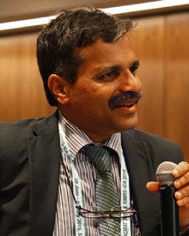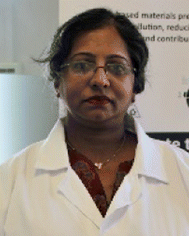 Open Access Article
Open Access ArticleCreative Commons Attribution 3.0 Unported Licence
Introduction to Bionanocomposites
Sabu
Thomas
 a,
Maya Jacob
John
a,
Maya Jacob
John
 b and
Aji P.
Mathew
b and
Aji P.
Mathew
 c
c
aMahatma Gandhi University, Kottayam, Kerala, India
bCouncil for Scientific and Industrial Research (CSIR), Pretoria, South Africa
cStockholm University, Sweden
Bionanocomposites comprising biobased polymers and nanosized bio-based fillers are novel materials with tunable properties and have diverse applications in packaging, environmental remediation and the biomedical sector. Bionanocomposite materials also have a significant role to play in the implementation of a functional circular economy.
In this themed issue, leading researchers from academia and industry were invited to submit reviews or their latest research on topics aligned to the development of bionanocomposites from renewable resources. Studies dealing with waste conversion to bio-based products and the development of bionanocomposites have been included in this issue. This issue consists of 7 research articles.
As guest editors of this themed issue, we acknowledge all the authors and reviewers who have contributed to its publication. We would also like to thank the technical support team at the Royal Society of Chemistry for their assistance in preparing this themed issue.
| This journal is © The Royal Society of Chemistry 2024 |


![[thin space (1/6-em)]](https://www.rsc.org/images/entities/char_2009.gif) 000. He has supervised 126 PhD theses.
000. He has supervised 126 PhD theses.
